
- Shandong Loyal Industrial Co.,Ltd.
- SHORT-CUT PASTA PRODUCTION LINE LONG-CUT PASTA PRODUCTION LINE INSTANT PASTA PRODUCTION LINE
Home> Application> Future-Ready Pasta Manufacturing: Full Automation for Maximum Efficiency and Energy Conservation

Future-Ready Pasta Manufacturing: Full Automation for Maximum Efficiency and Energy Conservation
Future-Ready Pasta Manufacturing: Full Automation for Maximum Efficiency and Energy Conservation
Introduction
Shandong Loyal Industrial Co., Ltd. has incorporated advanced technologies from TECHNOPAST and Lineapasta in the production of its macaroni.In the rapidly growing field of pasta manufacturing, the presentation highlighted the critical importance of future preparedness. This section explores why the adoption of full automation is critical, highlights the challenges faced by traditional approaches, and introduces full automation COMBINED PASTA PRODUCTION LINE as a transformative solution to ensure maximum efficiency and energy savings in the industry.
The Imperative of Future-Readiness
Delving into the imperative of future-readiness, this section outlines the pressing need for the pasta manufacturing industry to adapt to dynamic changes. It discusses the limitations of conventional methods and introduces full automation as the key to overcoming these challenges, setting the stage for a forward-looking discussion.

Evolution of Pasta Manufacturing Technology
Understanding the evolution of pasta manufacturing technology is crucial for contextualizing the current state of the industry. This section traces the historical journey from manual processes to the present era of full automation, emphasizing key technological milestones that have paved the way for future-ready approaches.
Technological Innovations Driving Automation
Highlighting pivotal technological innovations, such as advanced robotics and artificial intelligence, sheds light on the driving forces behind the industry's shift towards full automation. This discussion establishes a foundation for exploring the transformative impact of cutting-edge technologies.
Full Automation Processes: Precision and Sustainability
This section provides a deep dive into the core theme of full automation processes, emphasizing precision and sustainability. It explores how automation achieves unparalleled precision in pasta manufacturing while contributing to sustainability goals. The environmental impact of full automation and its role in energy conservation are key focal points.
Integration of Sustainable Practices
Emphasizing the integration of sustainable practices within full automation is crucial for addressing environmental concerns. This includes eco-friendly sourcing, energy-efficient technologies, and waste reduction strategies. The discussion aligns with the growing emphasis on environmental responsibility within the industry.
Leading the Industry: Future-Ready Pasta Manufacturer
An overview of the pasta manufacturer at the forefront of future-readiness becomes essential. This section explores their cutting-edge operations, advanced technologies, and innovative practices that position them as leaders in embracing full automation for maximum efficiency and energy conservation.
Comparative Analysis of Industry Leaders
Conducting a comparative analysis of leading future-ready pasta manufacturers allows for insights into the varied approaches and technologies adopted. This emphasizes the versatility and effectiveness of full automation in optimizing efficiency within the pasta manufacturing sector.
Case Studies: Showcasing Excellence in Future-Ready Manufacturing
Real-world case studies take center stage, featuring successful implementations of future-ready manufacturing. This section provides tangible examples of how these manufacturers have harnessed full automation, setting benchmarks for the industry.
Comparative Analysis of Case Studies
Conducting a comparative analysis of case studies allows for a deeper understanding of the varied approaches and technologies adopted by different future-ready pasta manufacturers. The section emphasizes the real-world impact of full automation in achieving maximum efficiency and energy conservation.

Overcoming Challenges and Future Outlook
Addressing potential challenges associated with adopting future-ready full automation is crucial. This section discusses strategies and solutions for overcoming obstacles, emphasizing continuous improvement and adaptation in the evolving technological landscape.
Continuous Technological Advancements
Highlighting the importance of continuous technological advancements underscores the dynamic nature of future-ready pasta manufacturing. The industry's efforts to stay ahead of challenges, embrace innovations, and proactively adapt to evolving consumer demands become a key point of discussion.
Future Trends in Future-Ready Pasta Manufacturing
Predictions for the future of future-ready pasta manufacturing provide insights into emerging technologies and trends. This section explores how sustainable practices and advancements in automation will shape the industry for optimal efficiency and energy conservation.
Emerging Technologies in Pasta Manufacturing
Discussing emerging technologies like advanced robotics and machine learning being integrated into future-ready processes provides a forward-looking perspective on the industry's trajectory.
Conclusion
The conclusion succinctly recaps the key points discussed in the article, emphasizing how future-ready pasta manufacturing through full automation is paramount for achieving maximum efficiency and energy conservation. It calls for continued innovation and collaboration to ensure a sustainable and prosperous future for the pasta manufacturing industry.

Frequently Asked Questions about Future-Ready Pasta Manufacturing
Are there any challenges associated with implementing full automation in pasta manufacturing?
Response: While full automation brings numerous advantages, challenges may include the initial investment in advanced technologies, the need for skilled personnel to operate and maintain automated systems, and potential adjustments to existing production workflows. However, overcoming these challenges often leads to long-term benefits.
How do leading pasta manufacturers incorporate sustainability into fully automated processes?
Response: Leading pasta manufacturers integrate sustainability into fully automated processes by adopting eco-friendly practices, optimizing energy consumption, and implementing waste reduction strategies. Sustainable sourcing of raw materials and the use of energy-efficient technologies contribute to environmentally conscious pasta production.
Can small-scale pasta manufacturers benefit from full automation?
Response: Yes, even small-scale pasta manufacturers can benefit from full automation. Modular and scalable automation solutions are available, allowing manufacturers to implement automated processes based on their specific production needs and scale up gradually as their business grows.
What does the future hold for full automation in pasta manufacturing?
Response: The future of full automation in pasta manufacturing looks promising, with ongoing advancements in technology. Emerging trends include the integration of artificial intelligence for process optimization, increased connectivity through the Internet of Things (IoT), and a continued focus on sustainable and eco-friendly practices.
Contact Us

- Shandong Loyal Industrial Co.,Ltd.
- Telephone+86 13176674591
- Email[email protected]
- WhatsApp+86 13176674591
- WeChat13176674591
- AddressC623, Jiahui Global Plaza, No. 548, Beiyuan Street, Tianqiao District, Jinan City, Shandong Province
- Factory AddressADD -300m North of Zhangxia Industrial Park, Binhe Road, Zhangxia Town, Changqing District, Jinan
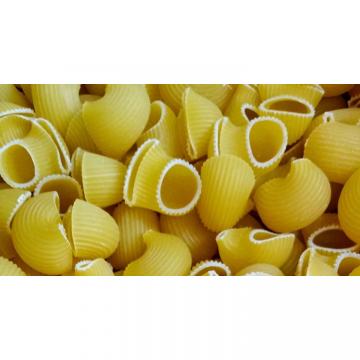

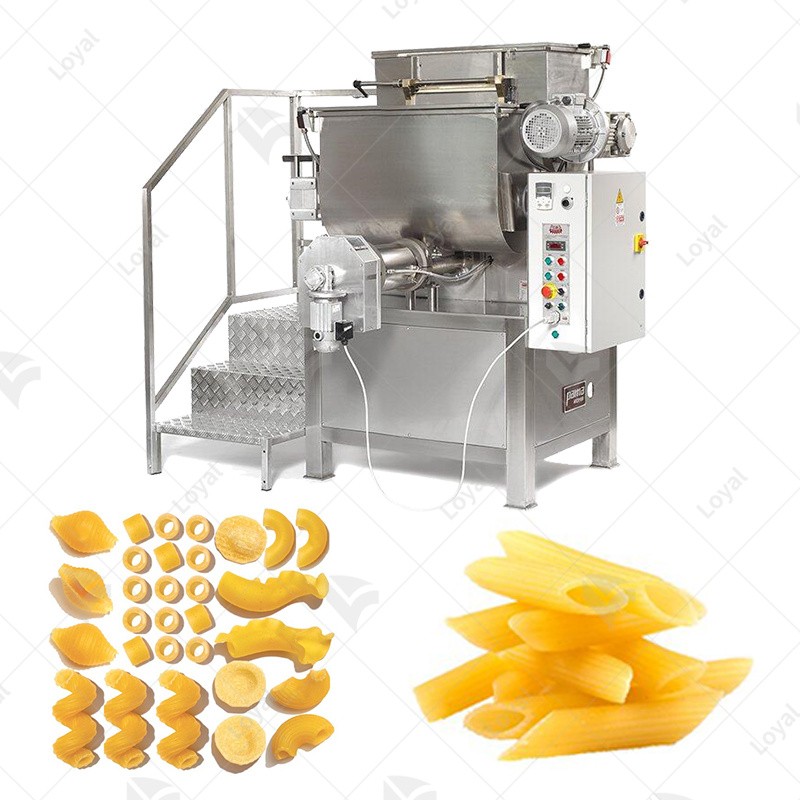

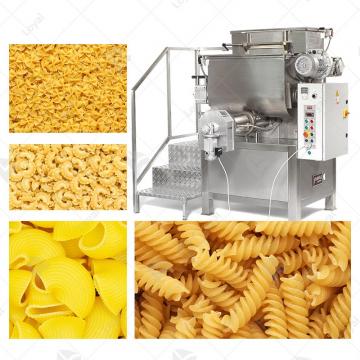
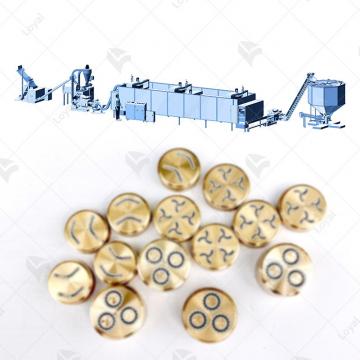 Pasta Processing Equipment
Pasta Processing Equipment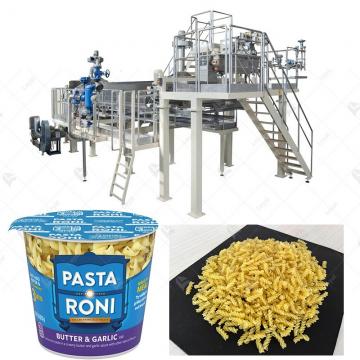 Instant Pasta Production Line
Instant Pasta Production Line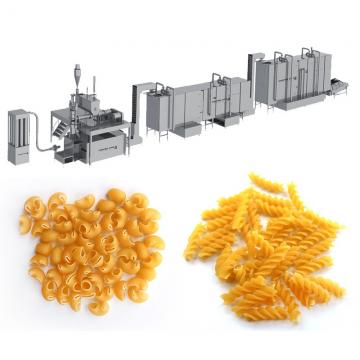 Vacuum Extruder Pasta Machine
Vacuum Extruder Pasta Machine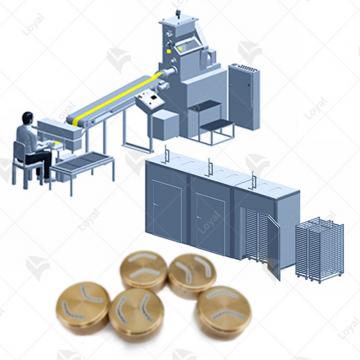 Dry Pasta Production Line
Dry Pasta Production Line